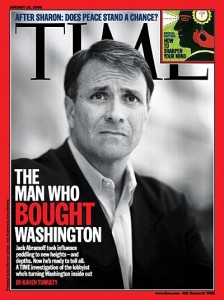 New York’s top PR man tackled the topic of ethics in PR in a Friday post on the Huff. Contrary to Ken Auletta’s gushing profile of the PR power broker in the New Yorker earlier this year, Ms. Huffington’s readers took a decidedly negative take on Howard Rubenstein’s “remedy” for what ails the industry:
New York’s top PR man tackled the topic of ethics in PR in a Friday post on the Huff. Contrary to Ken Auletta’s gushing profile of the PR power broker in the New Yorker earlier this year, Ms. Huffington’s readers took a decidedly negative take on Howard Rubenstein’s “remedy” for what ails the industry:
“Is this a joke? A Boy Scout PR guy? ‘Bullshit Artist’ is the relevant term, I believe.”
“Advertising, image-making is PROFESSIONAL LYING. Karl Rove sold us a rotten ‘bill of goods’ by image-making GWBush. Rove should pay with years of jail time for his MALPRACTICE!”
Such anti-PR vitriol (and the high-profile pedestal posed by the Post) likely prompted HJR to pen the piece in the first place. His glimpse of the profession, however, does have its shortcomings. First and foremost, it lacks any kind of explanation or historical analysis of what has led to the industry’s woes today (versus at any other time).
For example, I would have liked to have seen some recognition of how the Beltway’s brand of PR or the spread of astoturfing have led the profession to this especially ingnoble point in its history.
Also, his call for greater ethics and understanding says nothing that hasn’t been said before by Harold Burson or Jack O’Dwyer. In fact, I can’t recall a time in my 20+ years in the biz when someone or another was not sirening greater ethics among (and a better understanding of the work performed by) practitioners:
“…there has never been so much misunderstanding and misinformation about what PR practitioners actually do.”
Also missing was a tangible game plan to confront these problems, e.g., accreditation, mandated transparency, etc.:
“It is up to us in the profession to meet the challenge of our image problem, seize the high ground we deserve, correct the misperceptions about our industry and protect the tremendous accomplishments PR has made over the decades.”
Well, sure, who can’t agree with that? So now what do we do?
Finally, I was surprised that in this day and age, Mr. Rubenstein made no mention of the changes sweeping our profession. He says:
“If the PR industry is to continue expanding its role as a conduit to the media, and through them, the general public, we must work harder to shift the perception and reality of the craft from that of a marginal or dubious trade to a mature profession.”
Sure we serve as “conduits” to the mainstream media for our clients, but this assessment still has an anachronistic feel to it. Courting the media filter continues to provide a lucrative (and industry-defining?) source of income, but where does social media, SEM, digital content creation, monitoring the online conversation, etc., fall in Mr. Rubenstein’s portrayal of the modern PR pro, let alone the ethical considerations therein? Apparently nowhere.